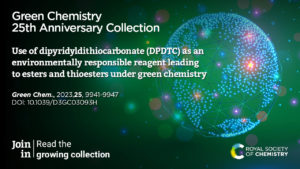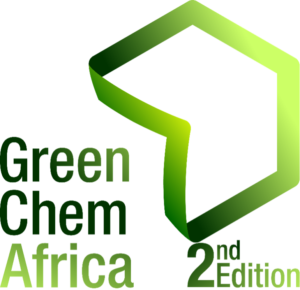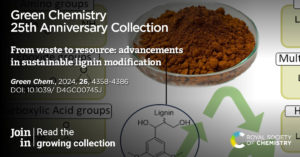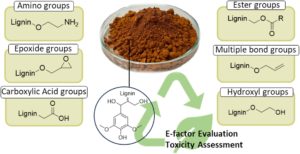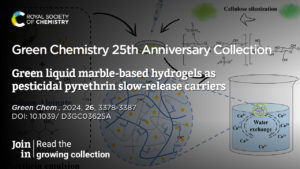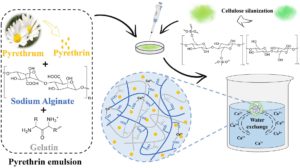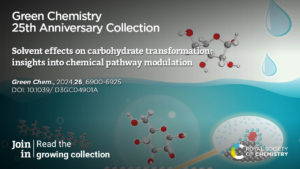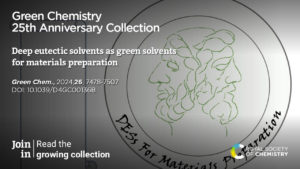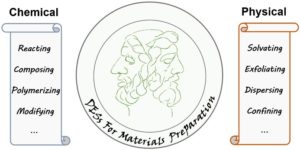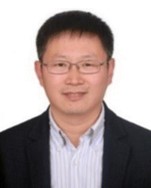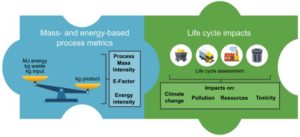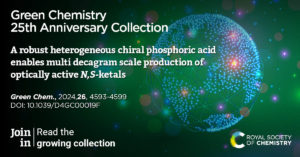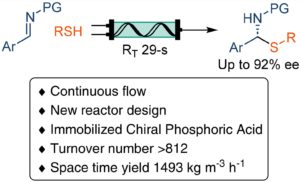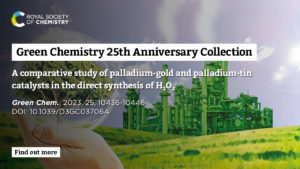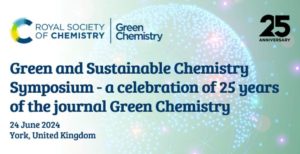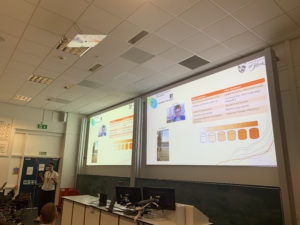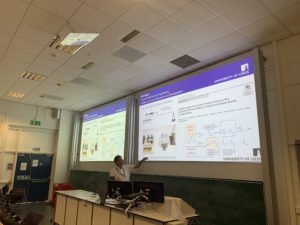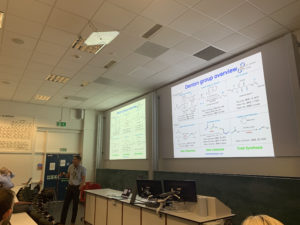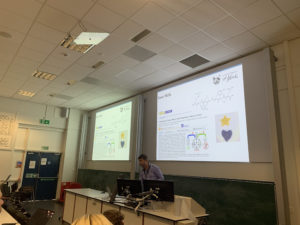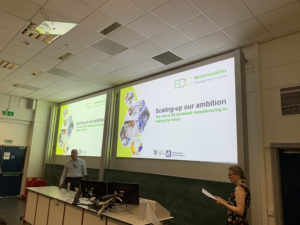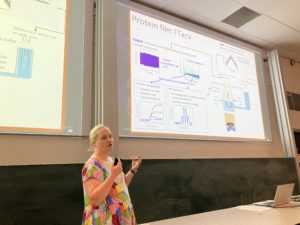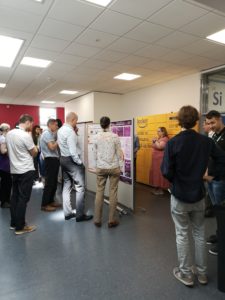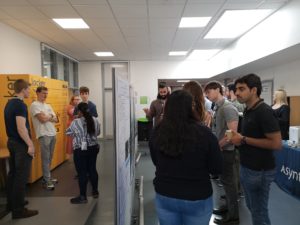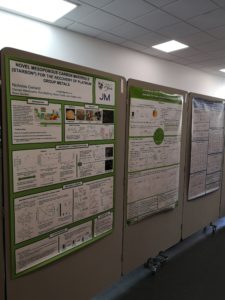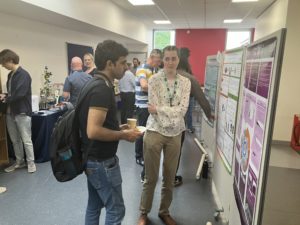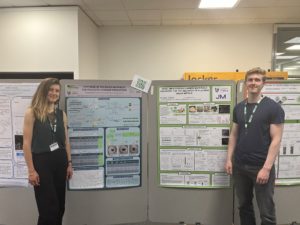Over the past 25 years, Green Chemistry has provided a unique forum for the publication of innovative research on the development of alternative sustainable technologies, efficient utilisation of resources and the concomitant minimisation of waste. We are delighted to bring together a very special issue containing articles by members of the green chemistry community as well as past and present Green Chemistry Board members, to mark and celebrate our first 25 years.
Among the contributions to this themed collection is a Paper on the use of dipyridyldithiocarbonate (DPDTC) as an environmentally responsible reagent leading to esters and thioesters under green chemistry conditions (DOI: 10.1039/D3GC03093H)
Read our interview with Prof. Bruce H. Lipshutz, the corresponding author.
Could you briefly explain the focus of your article to the non-specialist?
This article focuses on developing technology for making fundamental bonds that follow Nature’s lead; that is, using the same types of intermediates used throughout evolution, and as witnessed today in the human body to arrive at these same important bond constructions. This green approach can be used by the pharmaceutical industry in making their drugs, as it provides an alternative that does not use organic solvents that deplete limited petroleum reserves, nor does it create waste. Thus, the major difference between existing methodologies and the one described in this paper is that prior art utilizes reagents that are waste-generating, and organic solvents that are flammable and toxic as the reaction medium, neither being recycled. This technology, however, relies on either no solvent or a recycled green solvent, providing the desired intermediates efficiently, while the by-product formed can be recycled.
How would you set this article in a wider context?
The use of traditional organic solvents, in particular, once spent, leads to organic waste which is to a large degree burned. These carbon-containing solvents, therefore, produce CO2, a greenhouse gas, and hence, are contributing in a major way to climate change.
What is the motivation behind this work?
There is a need for all of modern organic chemistry to be redone, as it was developed over the past ca. 200 years based on organic solvents that predominantly derive from petroleum. The world needs methods, such as this one, which is representative of the possibilities for doing the same chemistry, but in an environmentally responsible manner.
What aspects of this work are you most excited about at the moment and what do you find most challenging about it?
Perhaps the most exciting aspect is the fact that the thioester intermediates initially formed are precursors to more types of products than the esters and other thioesters reported in this paper. In other words, they are also amenable to amide/peptide bond formation, which is the number one type of bond needed in the pharmaceutical industry. Thus, this technology was applied to the synthesis of nirmatrelvir, the key ingredient in Paxlovid. Once the amide/peptide is formed, the by-product can be easily recycled, so the amount of waste created is very low. This approach also applies to reduction of the same thioester intermediates, which represents a solution to the acid/ester issue that has for decades been done using highly dangerous and flammable hydride reagents, such as LAH and DIBAL. This alternative technology for the same reductions can now be accomplished in very inexpensive, water-containing 95% EtOH. The challenge was to find the “right” intermediate that allows each of these types of reactions to take place. As usual, the answer was to look to Nature, which has had over 4 billion years to develop solutions, as was found and applied to these fundamental problems.
What is the next step? What work is planned?
Applications; sequences; and direct comparisons. Applications: there is no shortage of bioactive targets that are currently made using traditional, waste-generating activating reagents in waste-generating organic solvents and hence, need to be “re-made” from the green perspective. Sequences, meaning that chemistry involving these new technologies can be telescoped, thereby leading to multi-step processes run in a single vessel. And comparisons, showing the chemistry community, by known examples that going “green” always wins; always.
Please describe your journey to becoming part of the Green Chemistry community
It started by chance back in 2006, when our campus Health & Safety Director informed me, after their weekly pick up and recording of our organic waste, that my group was not only the largest waste-generating on campus or the largest waste generating group in the city of Santa Barbara; but that we were the largest polluter in all of Santa Barbara County. From that moment on, since the vast majority of waste is organic solvents, we focused on developing chemistry in Nature’s chosen reaction medium: water.
Why did you choose to publish in Green Chemistry?
The readership knows that all papers must pass a rigorous evaluation of “greenness”; that if a paper is published in this journal, the work represents truly environmentally sound chemistry. Hence, as the world begins to shift towards sustainability, papers in Green Chemistry will take on a special meaning: they represent environmentally friendly processes that are in line with the future, encouraging an awareness that must be eventually considered in all that we as chemists do.
What do you think the Green Chemistry journal has done well in the past 25 years, and what do you think are the main challenges our community will face in the next 25 years?
The most important action that this journal has taken in my view these past 25 years is its claim to the field: it was an incredibly timely to claim its title: Green Chemistry. This alone tells the reader all that one needs to know! Other journals getting into the area realize this, and have been/are trying desperately to compete; to find a way to get a similar meaning across. And while certain markets might allow for this competition, the reality is that Green Chemistry highlights the chemistry of the future.
The main challenges over the next 25 years are not in terms of the chemistry that appears in this journal, or any other journal catering to this area. New technologies will be developed and added to a growing toolbox. The problem that has been and is likely to remain is: people. The science is there, and it will continue to get better. But people can get in the way: egos, money, changing regulations, job security, etc. This is the problem that Green Chemistry, and all journals dedicated to this essential field, must solve. This can be done, over time, with creative thinking, some financial backing, and a lot of effort. The success stories need to be told to a broad audience, and positioned in a way that makes each personal, with which the people reading/listening identify and have influence. We may never have a better chance to do this than today, with sustainability being a buzzword, and especially, climate change on most minds. But will we?
The Lipshutz research group
 The Lipshutz research group continues to develop new technologies in green chemistry, with the specific goal being to get organic solvents out of organic reactioons, as organic solvents are, by far, responsible for most of the organic waste created by the chemical enterprise, and derive mainly from finite petroleum reserves. To accomplish this goal, the concept of “designer” surfactants has been introduced within the area of aqueous micellar catalysis. The nanoparticles that form in water from these amphiphiles act as nanoreactors, enabling key transition metal-catalyzed cross-couplings, and many other reactions, to be carried out in water under mild conditions.
The Lipshutz research group continues to develop new technologies in green chemistry, with the specific goal being to get organic solvents out of organic reactioons, as organic solvents are, by far, responsible for most of the organic waste created by the chemical enterprise, and derive mainly from finite petroleum reserves. To accomplish this goal, the concept of “designer” surfactants has been introduced within the area of aqueous micellar catalysis. The nanoparticles that form in water from these amphiphiles act as nanoreactors, enabling key transition metal-catalyzed cross-couplings, and many other reactions, to be carried out in water under mild conditions.
The group has also focused its attention on developing new catalysts for key Pd- and several other transition metal-catalyzed reactions that enable C-C, C-N, and C-H bond formation typically at the parts per million level of the metal. Most recently, these newly developed technologies in chemo catalysis are being merged with enzymatic processes, done in tandem in 1-pot, and all in water.


